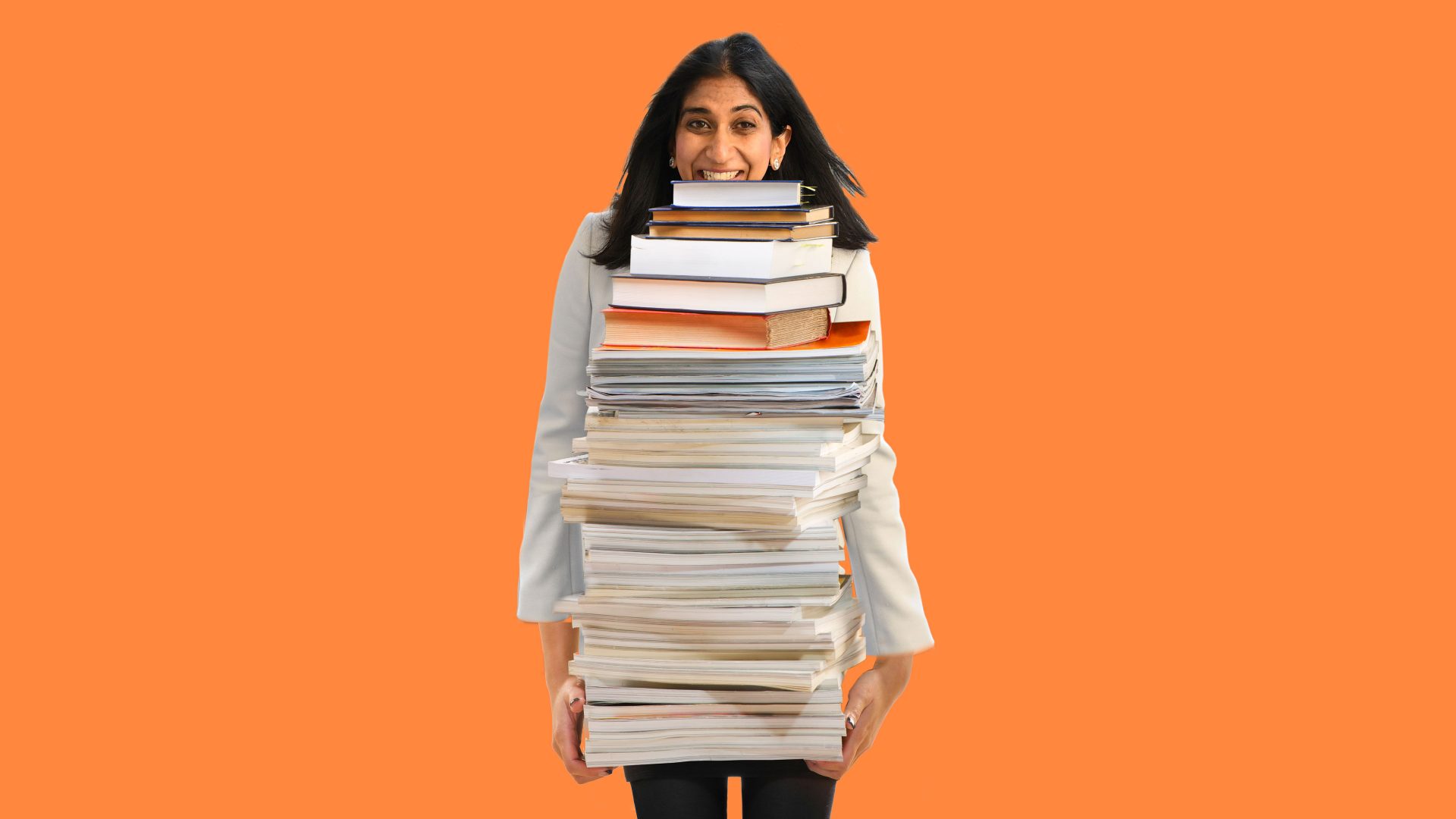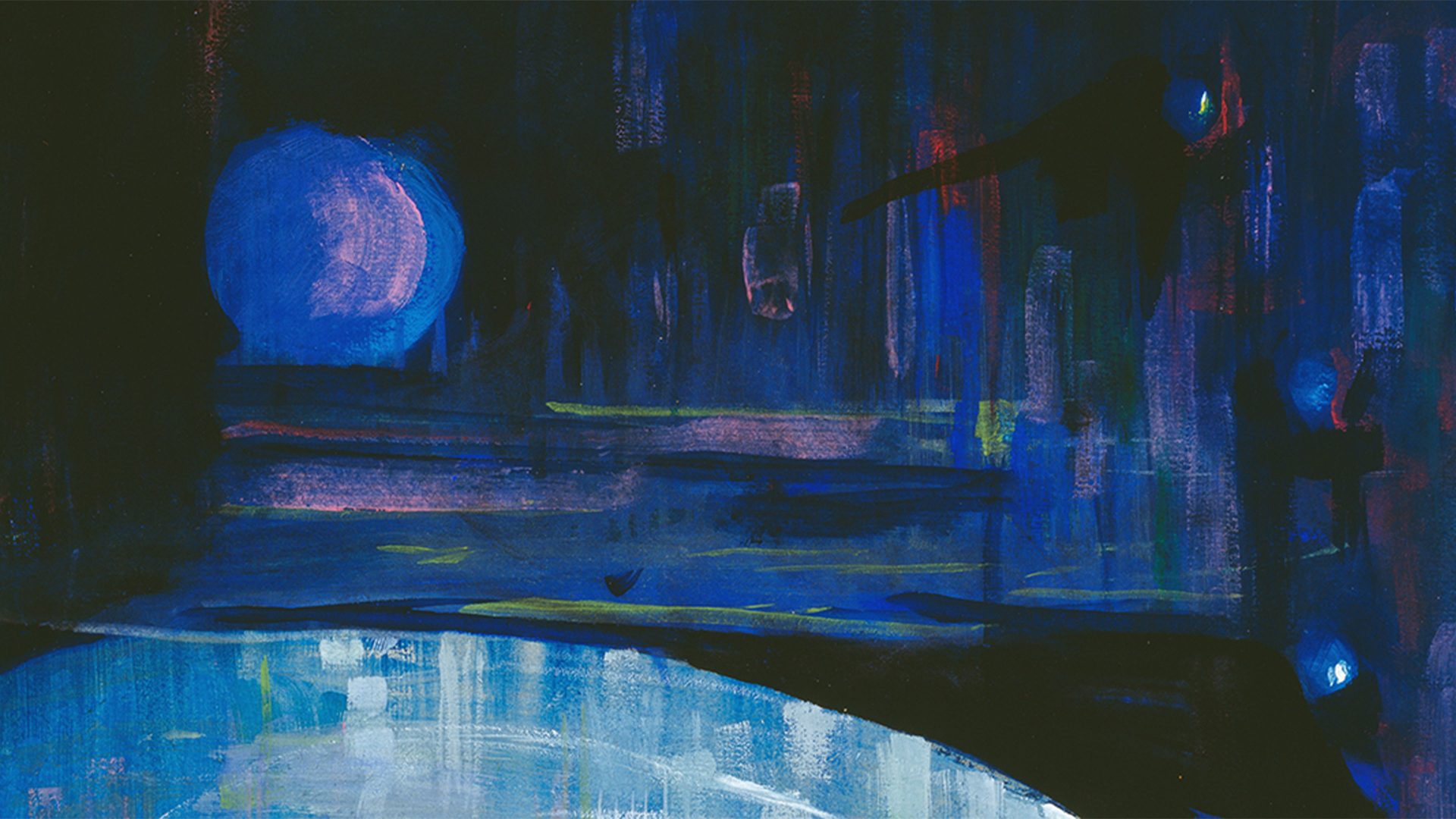Dear Suella,
I could have begun this letter by addressing you as home secretary but with the frankly bewildering pace of political events these days there’s a fair-to-middling chance you won’t be home secretary by the time this appears. Mind you, it’s equally possible that you’ve been fired or resigned again and been reappointed again. In which case, congratulations! Go you!
Anyway, I hope you don’t mind me using this column to tug your sleeve, it’s just I know you’ve been having a bit of bother with emails lately.
I was a bit startled by your remarks in the House of Commons on Halloween about asylum seekers. Talking in terms of an “invasion on our southern coast” and “illegal immigration” being “out of control” sounded a teensy bit excessive and not quite accurate, if I’m honest, particularly coming the day after a petrol-bomb attack on that asylum processing centre in Dover.
Some home secretaries might have used their platform to calm tensions and division so soon after a terrorist attack, but hey, you were under scrutiny, facing awkward questions about scabies and diphtheria and people living in tents, not to mention awkward speculation about your integrity and competence. Who in the circumstances wouldn’t have whipped out the ol’ dogwhistle and given it a hefty toot?
Either way, you’ve clearly been having a bit of a time of it lately and I can’t help thinking that what you need is a good dose of nourishing, informative, restorative literature. Doctor Charlie is here with your literary prescription.
I worry that, given the nature of your job, (whatever it might be this week) you’re seeing only statistics and headlines in bewildering amounts. Your inboxes must be brimming, work, personal and that sort of grey area in between that you seem to like. In these circumstances it would be easy to forget that behind those numbers there are actual people, individuals who once had normal lives full of the same hopes, fears, careers and passions we have. They had homes, places they liked to go and things they liked to do at the heart of their own networks of family, friends and colleagues. Some were happy, some were not, others – like most of us – were a bit of both, but whatever combinations of people, places, thoughts and feelings that made up their lives, it was theirs.
They don’t have that any more. Through no fault of their own it’s all gone, leaving them rootless, cut adrift from everything familiar. Most have reached a destination of sorts in the Middle East, North Africa or Europe; a small percentage have been washed up by tides literal and geopolitical on our shores, a bit like the narrator in that WH Auden poem: “Once we had a country and we thought it fair, Look in the atlas and you’ll find it there: We cannot go there now, my dear, we cannot go there now”.
I know – quoting Auden! I’ll be eating tofu next. But those lines do capture the refugee experience better than a whole pile of briefing papers.
That’s what literature does, you see. It distils the big important themes – love, friendship, fear, hope, tragedy, redemption, very hungry caterpillars – into stories that help us to understand the world better, dropping us into situations from which we emerge moved, enlightened and hopefully entertained. Whatever the outcome, they get us thinking.
Refugee stories have been part of the literary scene for almost 3,000 years. Take The Odyssey, in which Homer charts Odysseus’s decade-long journey home to Ithaca after the fall of Troy. Towards the end Odysseus is shipwrecked – long story, rubbed Poseidon up the wrong way, Poseidon sent a massive storm – and he washes up on the island of the Phaeacians. He’s lost everything, even his clothes. Before long the princess Nausicaa arrives at the beach with her maids where they wash some clothes and mess about for a bit. Odysseus, holding some carefully arranged leaves to preserve his dignity, approaches them for help. Now, to these women the man walking across the sand towards them is not the King of Ithaca with a heroic tale to tell, he’s a stranger, a foreigner, a man who has come from the sea, dirty and unkempt. For them he has no context, no story, he doesn’t even have clothes. What does Nausicaa do? She gives him clothes, feeds him and gives him shelter. Refugee stories like this speckle the entire history of literature, from Odysseus to Paddington Bear via Arthur Dent and even Superman, tales in which the forcibly displaced seek first shelter and then a place in the universe, either returning home or making a life somewhere new. In recent years there have been some excellent novels charting the experience of those forced into itinerance by circumstance. I think you might enjoy them, or at least get something out of them, something to put a bit of life into all those reports and briefings anyway.
In 2019, for example, Christy Lefteri published The Beekeeper of Aleppo. The daughter of Cypriot refugees herself, at the start of the Syrian refugee crisis Lefteri went to Athens to volunteer at a centre for women and children pushed out of their homeland by war. Her novel chronicles the journey of the eponymous Nuri and his wife Afra, who is blinded by the explosion that killed their son, as they make their way first through Turkey to Greece and then across Europe to the UK.
The book is drawn from real stories of refugees Lefteri met, stories like those of people arriving today after epic journeys worthy of Homer himself, the ones crammed into fetid rooms and tents, the ones getting diphtheria, the ones targeted by a petrol bomber.
Mohsin Khan’s Exit West tells a similar story. His protagonists benefit from magic doors that lead them from a city engulfed by civil war to a refugee camp in Mykonos, then to London – where things get a bit unpleasant, then on to San Francisco.
I should just reassure you here: there are no magic refugee doors to London in real life. There might be magic career doors for whenever you and your Westminster pals end up in the soup, but don’t worry, refugees don’t have anything like that.
Still, if the thought of refugees materialising through magical portals is too nightmarish, Ocean Vuong’s On Earth We’re Briefly Gorgeous might suit you better as it all takes place a long way away. Vuong has lived in the US since arriving as a refugee from Vietnam as a toddler, so his 2019 novel is infused with the legacy of that experience.
His book is loosely based on his and his family’s stories and is written in the form of letters from the protagonist Little Dog to his mother. It’s quite poetic in a way, sometimes the language feels a bit over-egged but it’s raw and honest and you’d get a lot out of it, I think, because when I hear you talking about people seeking asylum here you sound as if it’s a negative thing. Yet Vuong helps demonstrate how the people arriving on our shores are pretty much like you and me with careers, trades, skills and professions. They’ve also had the gumption to make their way across an entire continent on little more than their wits when their mental and physical health has never been under greater strain. I mean, these sound like people with a lot to offer this country, right?
That’s why I also think you might want to read some Abdulrazak Gurnah. If you recognise the name it’s because last year he was awarded the Nobel Prize for Literature and do you know what? He’s a refugee! We took him in! Go us!
He arrived as a teenager after fleeing murderous strife in Zanzibar in 1968 and has gone on to become not only the author of ten Nobel-worthy novels but also professor emeritus of literature at the University of Kent. I know! Loads to offer, and a perfect literary fit for you because he really knows what he’s talking about.
“For centuries, Britain has been torn between offering asylum and xenophobia to those who have presented themselves in desperation; on average asylum prevailed and has resulted in many gains for British culture,” he said back in 2001. “In this, as well as in understanding the circumstances that lie behind refugee desperation, history and patience lead us not to paralysis but to a knowledge of our better selves.”
You could try his sixth novel By the Sea, in which an exile named Saleh Omar lives in a British seaside town, allowing Gurnah to explore the many nuances, contradictions and layers that lie beyond the headline-courting dogwhistles and boneheaded legislation that defines the refugee situation for people in this country.
I honestly think exploring some of these works might restore to the forefront of your mind how the people arriving on our shores are people like us, who need our help, who would much rather be at home than here. People like Abdulrazak Gurnah who said of his arrival: “I thought about what I was escaping from and a lot less about what I was escaping to”.
One last quick thing: if you want to email me about this, please check you’ve got the right address. You know what you’re like!
Anyway, I really hope you enjoy the books.
Best,
Charlie




